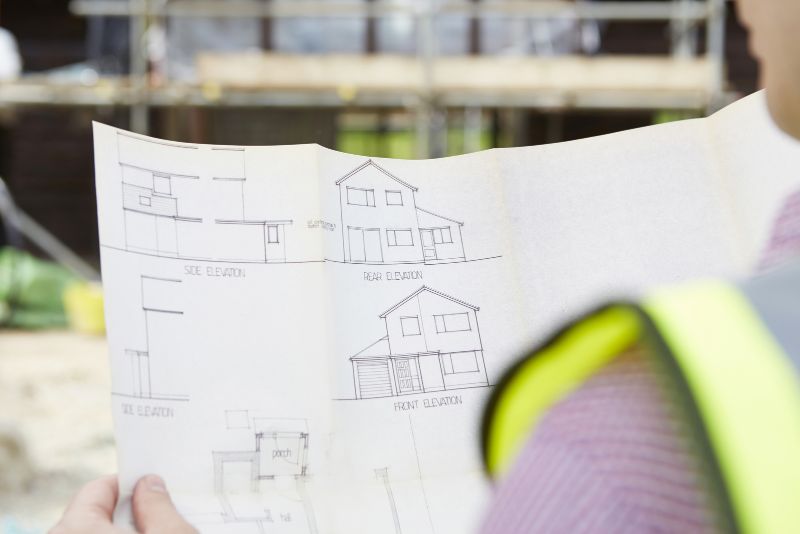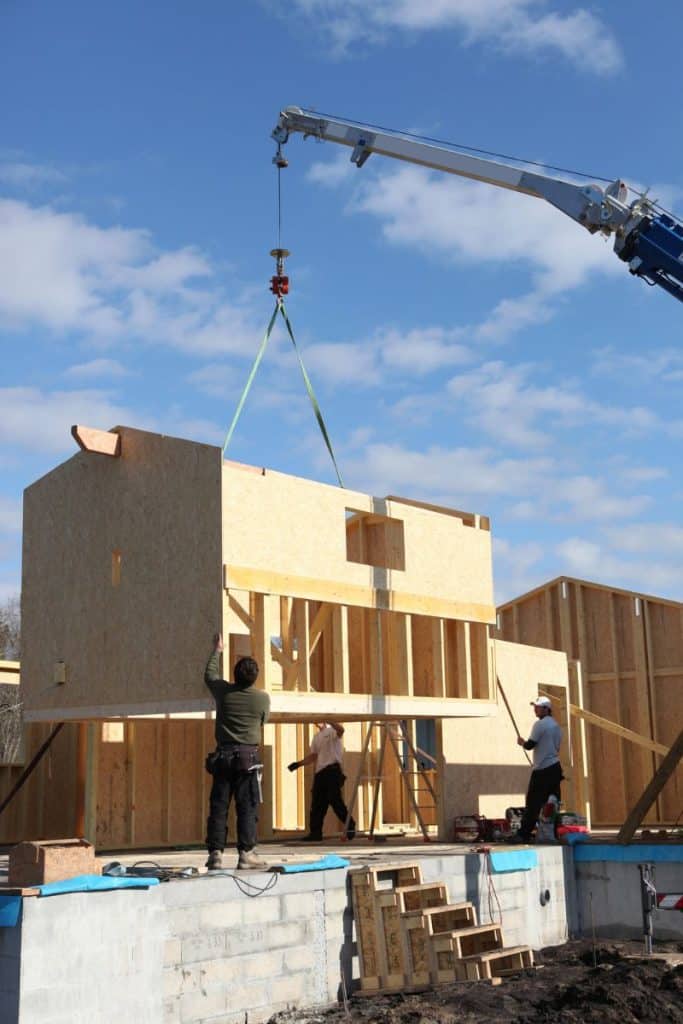Building a home from scratch is an endeavor that offers a unique sense of fulfillment, as it allows you to shape your living environment to meet your specific needs and preferences. However, this process is far from straightforward – it involves intricate planning and decision-making. Understanding the key considerations when building your house is crucial to ensure a successful project.
From choosing the right location, and employing an experienced architect, to selecting the most suitable materials, every aspect requires careful thought. This document serves as a guide to the seven essential elements to keep in mind when building your house.
By the end of this guide, you will be well-equipped with the knowledge to embark on this rewarding journey of creating your dream home.

1. Choose the Right Location
The location of your home impacts not only your lifestyle and convenience but also your future value. Consider factors such as proximity to amenities, transportation links, safety, and neighborhood aesthetics. It is also essential to familiarize yourself with local zoning laws and regulations before finalizing the location.
The location also plays a factor in the climate you live in, as, for instance, premium roofing installations are necessary in areas with extreme weather conditions. Moreover, when building on a sloped terrain, the site conditions should be carefully assessed to determine any additional costs that may arise. The location will also impact the overall cost of your project, so it is crucial to strike a balance between budget and convenience.
2. Hire an Experienced Architect
An architect’s expertise is vital in translating your vision into a functional and aesthetically pleasing design. They can also guide you through local regulations and potential design obstacles. When selecting an architect, thoroughly review their portfolio and ensure they are licensed and insured.
Additionally, it is crucial to establish clear communication and a good working relationship with your architect from the beginning to avoid any misunderstandings later on. When working with an architect, it is also vital to trust their professional judgment and be open to suggestions. Most architects have a unique artistic vision that can significantly enhance the design of your home.
3. Select Suitable Materials
Choose construction materials that balance durability, aesthetics, and sustainability. Your choices will significantly impact your home’s longevity, maintenance needs, and environmental footprint. For example, energy-efficient windows and insulation can reduce your energy bills in the long run.
Similarly, selecting eco-friendly materials such as bamboo or reclaimed wood for flooring can minimize environmental impact. When choosing materials, it is also crucial to consider your budget and compare prices from multiple suppliers to get the best deals. For added peace of mind, consider hiring a professional contractor who can advise you on the best materials for your budget and needs.
You should also look at what equipment and machinery you’ll need for the job. A good starting point like Roura Material Handling is worth checking out to see what might be suitable for your project.
4. Budget Management
Establish a realistic budget, factoring in all potential costs. Remember, expenses often exceed initial estimates in construction projects. It is essential to factor in hidden costs such as permits, taxes, utility connections, and landscaping. To avoid any financial surprises, set aside a contingency budget for unexpected expenses.
It is also advisable to prioritize your must-haves and splurge on those aspects that are most important to you. On average, 25% of the total project cost should be allocated for design and architectural fees. When working with a contractor or architect, be transparent about your budget and communicate any changes or concerns promptly.
5. Plan for Future Needs
Consider your long-term plans. Do you intend to grow your family? Do you plan on aging in your new home? Your design should accommodate these potential changes. For instance, consider incorporating a flexible floor plan that can be easily modified to accommodate future expansions.
Also, opt for durable and low-maintenance materials to reduce upkeep costs in the long run. Additionally, if you are planning on living in your home during retirement, features such as wider doorways and walk-in showers may become essential.

6. Safety First
Prioritize safety measures throughout the design and construction process. Ensure your contractor is licensed and adheres to safety standards. It is also essential to have proper insurance coverage for both yourself and your workers. Consider incorporating features such as fire-resistant materials, smoke detectors, and security systems into your home’s design.
Safety comes in various forms, so it is crucial to discuss any concerns or special requirements with your architect and contractor. Moreover, do not compromise on safety to save costs – it is always better to be safe than sorry.
7. Choose Reliable Contractors
A reliable contractor can make or break your project. Research and select a team with a proven track record in delivering quality work on time. Ask for references, read reviews, and interview multiple contractors before making a decision.
Additionally, ensure your contract includes detailed specifications, timelines, payment schedules, and dispute resolution procedures. Regular communication with your contractor is essential to keep the project on track and address any concerns promptly. It is also crucial to establish clear expectations and maintain open lines of communication throughout the construction process.
Building a house is a significant undertaking, but with careful planning and consideration of these seven elements, you can ensure a smooth and successful project. Remember to prioritize your needs, set realistic budgets, and work with professionals who understand your vision and have the expertise to bring it to life.
Your dream home awaits – let these tips be your guide as you embark on this exciting journey. So, keep these seven things in mind when building your house – location, architect, materials, budget management, future needs, safety measures, and reliable contractors.
